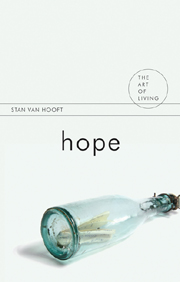2 - Being hopeful
Summary
So far we have been considering examples in which the hope being discussed is more or less episodic. What I mean by this is that there was a definite and relatively short period during which the hope was entertained. John hoped that it would not rain on the day that he needed to go to university and was at risk of getting wet. When the circumstances change, the hope is no longer apposite and so disappears. My hope that I receive a CD for Christmas will cease -either with satisfaction or disappointment – at Christmas. Fatima hoped that her child would be found for as long as it was not found. However, Christine Collins's hope continued indefinitely and raised the difficult questions we have noted about how such hopes are related to action and whether such hopes could be rational. It will be interesting to explore why such cases of temporally open-ended hopes raise such difficult questions.
One way of approaching this issue is by noting a technical feature of hopes. Hopes are directed upon objects. One hopes that some event will occur, that one will obtain some item or that one attains some goal. John hopes that it will not rain; I hope to receive a Miles Davis CD; Bob hopes to become rich; Fatima hopes that her child is found; Tony hopes to go to South America. These are all hopes for something.
- Type
- Chapter
- Information
- Hope , pp. 48 - 65Publisher: Acumen PublishingPrint publication year: 2011



